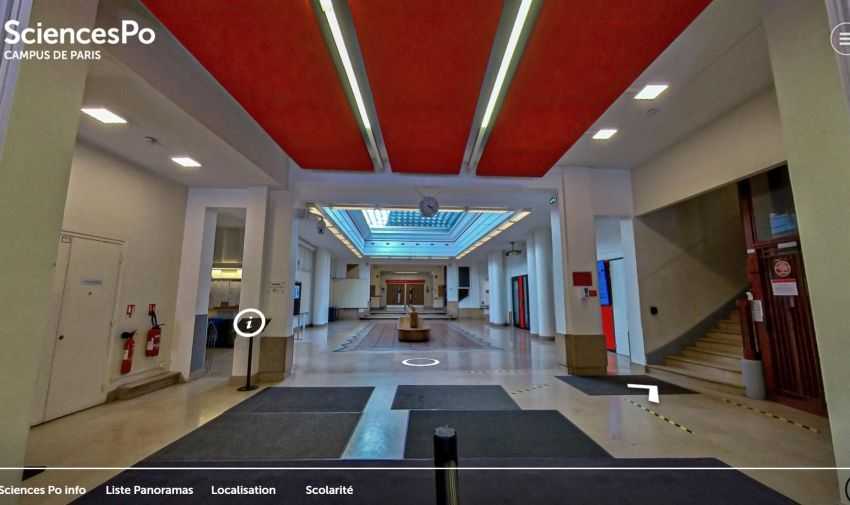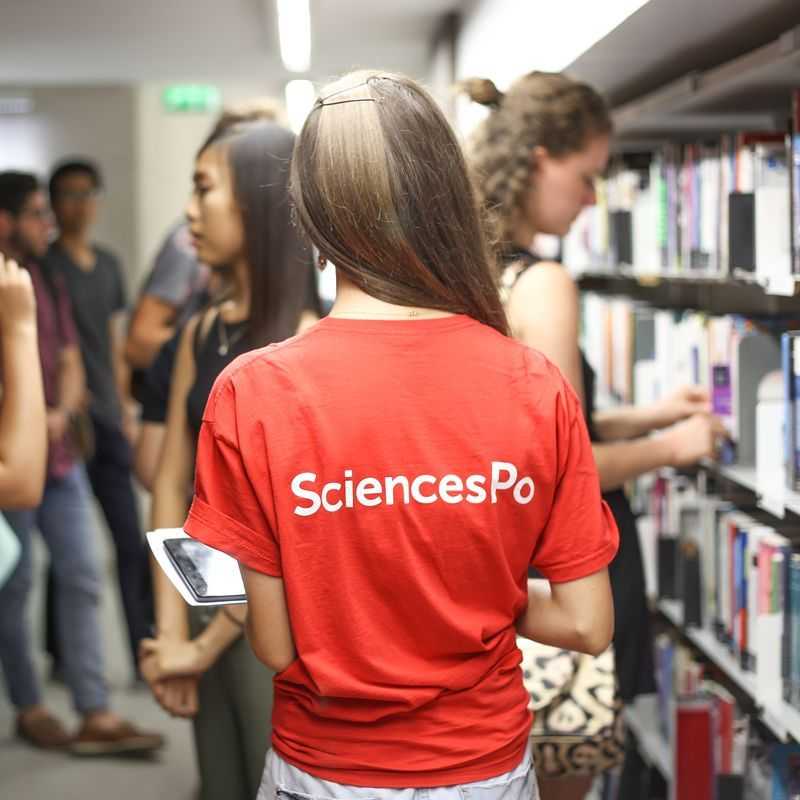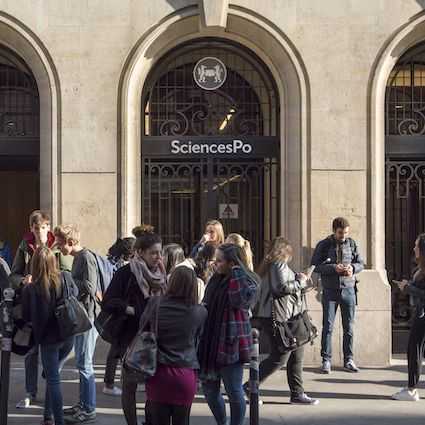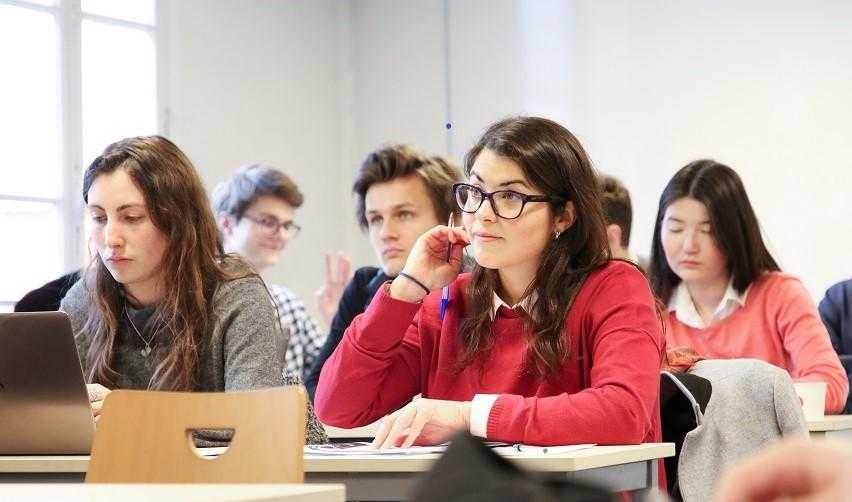
Home>Academics>Bachelor of Arts>Second Year
Bachelor of Arts, Second Year
Information Sessions: Undergraduate College, Intake 2026

In October 2025: find out more about the Sciences Po Bachelor's degree, our 7 campuses, the geographical Minors and the international dual degrees during our webinars dedicated to prospectives students.
Description
The second year is dedicated to more advanced study of fundamental disciplines introduced in the first year – and their accompanying theories and methodologies. Students continue to complete the compulsory core curriculum and begin coursework for their chosen multidisciplinary major: Economy & Society, Political Humanities, or Politics & Government. Courses in the major may be linked to a regional concentration and taught in one of the languages spoken in the region of focus of the campus.
The core curriculum consists of one disciplinary lecture course chosen by the student from a choice of law, economics, political science or sociology; one lecture course “Political History of the 20th Century” linked to the student’s regional concentration; one multidisciplinary course examining the economic, social and political impacts of digital technology, “Introduction to Digital Culture”; one multidisciplinary class dedicated to the interaction between the exact sciences and contemporary society, “Science and Societies”; artistic workshops; and language classes.
Coursework in the major also includes disciplinary and multidisciplinary courses as well as methodology workshops designed for each major.
All students complement their in-class learning with field experience including group projects, negotiations simulations, and study trips.
Second year programme
A block represents a semester-long course of between 24 and 60 hours.
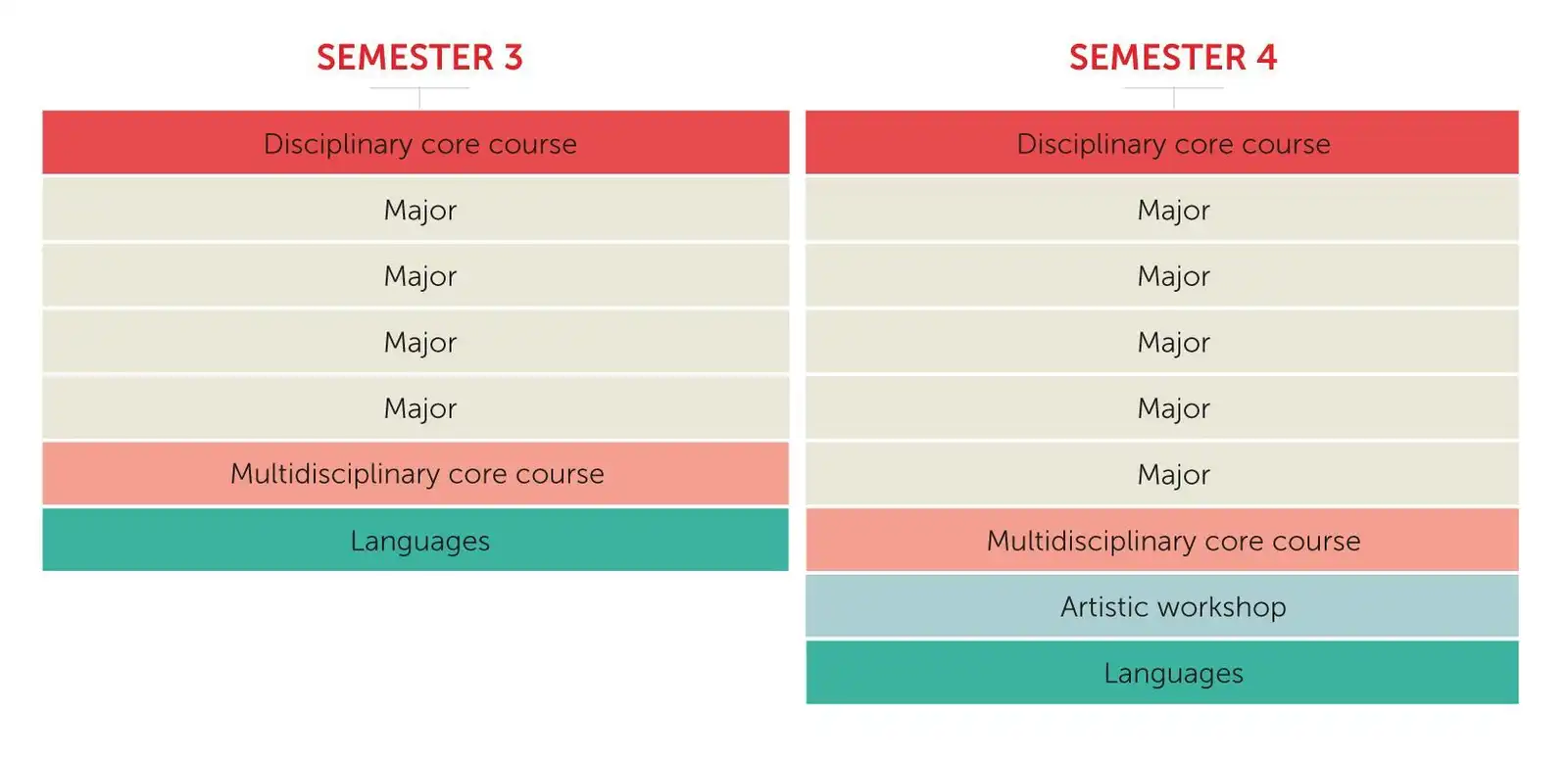
Course list
Important stages
Courses
During course registration: choice of the non-major disciplinary course, major courses, artistic workshops and language classes.
In the first semester:
- Continuation of the civic programme with an "open project" in the form of a group project or involvement in an association at Sciences Po or off-campus;
- Defining and preparing a plan for the third year abroad
Pedagogical Support Resources
Tutoring sessions are available to help students reinforce their skills in methodology (documentary research, graphic treatment of data), language, and audiovisual tools.
Digital Skills Training: Sciences Po highly recommends this course, which is designed to help students not only discover but master digital tools and technologies that can be used in both in-class and extracurricular work (classes, internship, student life). The class is optional, but is credit-bearing for those who successfully complete it.
Guidance in developing an academic project for the compulsory third year abroad:
- During the first semester, students research possible third year formats, potential language requirements, important pre-departure information, associated costs with the destination in question, and details concerning credit obtention. They are also expected to reach out to the relevant points of contact within the institution to further refine their projects.
- Throughout the year, faculty advisors provide students with methodological support (including documentary research) in anticipation of the Capstone Project, a mandatory written exercise to be submitted by all students at the end of the third year.
Key Facts
- Three-Year Bachelor's Programme
- Languages: French and English
- ECTS: 180 minimum
